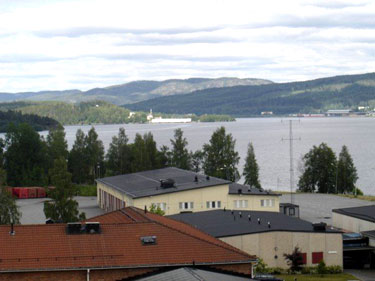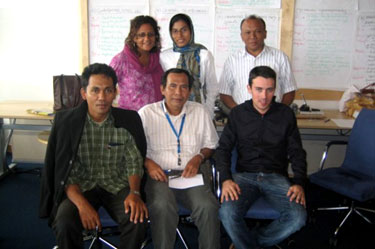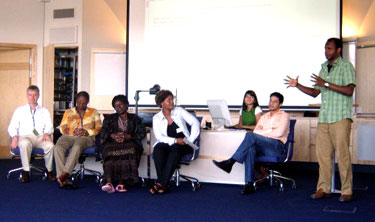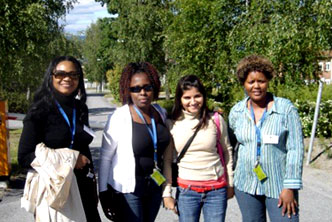Economic Actors in Conflict Prevention
|
|
July , 2007
By Devika Mistry
|
The Sweden based, Folke Bernadotte Academy, named after Count Folke Bernadotte who was the first UN official mediator has been committed to international peace and security since its inception. The Academy whose main office is located on the island of SandŇ‚Äė works on different trajectories; in its spirit of conflict prevention and management it not only produces research and studies but also conducts educational training courses, as well as funds civil society peace projects. At the functional level all of these functions are carried out under the auspices of cooperation with international and national organizations.

Sando, Sweden
I had the opportunity to participate in a course, titled ‚‚ā¨ŇďEconomic Actors in Conflict Prevention‚‚ā¨¬Ě which exemplified all of the above attributes. The course was moderated by Irma Specht of Transition International, Prof. Nat Colleta, founder of the World Bank‚‚ā¨‚ĄĘs post conflict Unit, Bernd Papenkort of the Oxford Leadership Academy and the academy‚‚ā¨‚ĄĘs Ambassador Ragnar √‚Äěngeby. The focus of the course was to give participants a more thorough understanding of who the economic actors are and how to interact and motivate them towards sustainable economic development. The understanding is that economic actors are increasingly seen as incredibly influential in promoting economic growth at the local, national and international level which in turn makes them important factors and ‚‚ā¨Ňďdrivers of change‚‚ā¨¬Ě for conflict resolution and peace building. Their contribution is essential at all levels, pre conflict, during conflict and in post conflict economies. The contribution of economic actors as we debated, while largely focused on employment generation, micro finance creation and private sector initiatives was not limited to economic actors purely at the local level but also at the international level. What makes this subject area especially interesting is that ‚‚ā¨Ňďeconomic actors‚‚ā¨¬Ě as a concept was not restricted to organizations or conglomerates but was also approached keeping in mind individuals that make up an organization, or an individual by him or herself. In the twenty first century, individuals in the private sector, especially, have the capacity to mobilize international attention and funds like never before. Or then to use their personal wealth towards making a positive change.

Aceh Team
The course focused on three regions of the world, Aceh in Indonesia, Columbia and Zimbabwe. A delegation of from each of these three focus countries provided for an in depth look into the ground situations in these countries. Aceh being a post conflict economy whereas identified regions within Colombia and Zimbabwe were designated as potential conflict prone areas. The internal dynamics in each of these regions, called for the creation of strategies for employment instead of warfare, for all groups, youth, men and women that were unique to their individual circumstances. This is an important aspect given the link between problems of mass unemployment and conflict in many parts of the world. The course played special attention to the post conflict economy and the reintegration of the same, by focusing on the potential to support already existent economic structures, as well as to understand and manage security and military threats and to balance the same with development.
The course also highlighted the negatives of intervention by ‚‚ā¨Ňďbenevolent‚‚ā¨¬Ě economic actors that might unwittingly propagate instead of mitigate conflict by sustaining avenues for funding of arms for instance, or by bringing in funds into a community in the form of aid which is then exploited by a group creating vested interests in prolonging a conflict.
The culmination of the 5 day course, was the creation of local economic development plans for the identified regions in Indonesia (Aceh), Zimbabwe and Columbia. All three projects have the prospects of being recreated on the ground.

Devika Mistry, SFG with Zimbabwe Country Team

Devika Mistry, SFG with other participants
Related Publications
Related latest News
Related Conferences Reports
-

P5 Experts Roundtable- Online on AI- Nuclear Nexus
read more -

P5 Experts Roundtable on Nuclear Risk Reduction
Download:Geneva Roundtable Report





